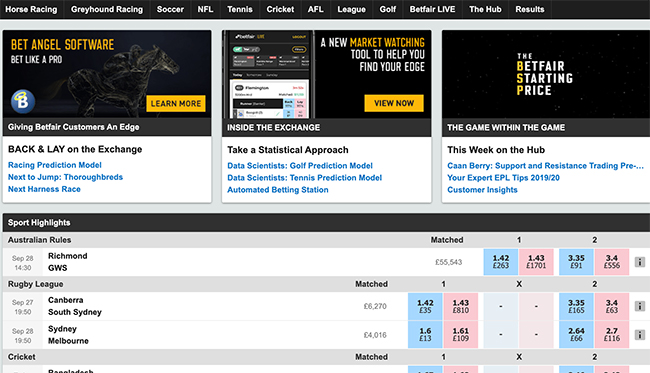- When will gambling affect a mortgage application? If you’re a professional gambler wanting to use your winnings as evidence that you can afford to take out a mortgage, then you might come up against a few hurdles, as this is considered far more risky than someone who has a job and gambles occasionally on the side.
- What you probably don’t know is whether Matched Betting can affect your mortgage application. If you’re planning to apply for a loan in the foreseeable future, reading this article is a must. This is where you will find all the answers you’re looking for.
- Can Gambling Affect Mortgage Payment
- Will Gambling Affect Mortgage
- Can Gambling Affect Mortgage Rate
- Can Gambling Affect Mortgage Rates
So, there are various circumstances where gambling can present issues for mortgage applicants, and gambling is one of many factors that can affect your mortgage application. With the proliferation of betting companies and the increasing opportunities for online gambling, this issue could become a much more significant obstacle to UK borrowers.
Does gambling affect your mortgage application?
A borrower that gambles presents an increased risk to a lender. Think of it from their perspective; They’re lending out potentially thousands of pounds, so they want to feel sure that they’ll get it back. A person who frequently gambles chunks of their income may be less able to pay their mortgage on time and full.

A lot of people wonder just how strict lenders are when it comes to gambling and mortgages and because of uncertainty, some people avoid applying at all.
We’ve answered the most frequently asked questions around this topic to help you make an informed decision about how to apply for a mortgage after gambling.
Can a lender decline your mortgage application for minor gambling?
So what happens if you only ever gamble small amounts here and there?
Well, the good news is that the type of gambling, the amount of money you bet and the frequency in which you do it, can all play a part when lenders make their decision.
If your bank statements show a pattern of unaffordable, high risk betting, you may find your choice of lenders is drastically reduced. Lenders will compare the level of gambling in relation to your income so small flutters that don’t occur often or affect your finances may be accepted.
If you’re unsure about whether the amount you gamble could stop you from getting a mortgage, ask a mortgage broker for a quick call.
Can lenders see that I have gambled on my bank statements?
Yes, when you apply for a mortgage lenders will want to look at your bank statements from the past 3 months, to determine your affordability. Some lenders can ask applicants to go back even further and supply statements and proof of income from 12 months ago.

This is something to keep in mind if you’re applying for a mortgage in the near future as any
indication of gambling or overspending can be seen by the lender and may affect your mortgage application.
Can professional gamblers get a mortgage?
The nature of gambling is unpredictable and even those who derive their income from gambling will experience periods of fluctuation. Lenders look at affordability and income closely when assessing the risk of a borrower and periods of low income can create concerns about how the borrower will pay back their loan.
Can Gambling Affect Mortgage Payment
In most instances, lenders won’t accept income from gambling and will require the borrower to have income from a more predictable source i.e. a salary.
However, each lender has their own set of criteria when it comes to approving a mortgage for a gambler, professional or not, so even in instances where the borrower has been declined for a mortgage because of gambling, another lender may be found elsewhere.
Finding a mortgage lender that accepts gambling transactions
The key to finding the right mortgage for you lies in comparing a wide range of mortgage products, interest rates and lender agreements.
Without the knowledge of where to look or how to negotiate the best deals, it can feel like you’re taking a leap in the dark, especially when not all lenders display their rates or criteria on comparison sites.
Our mortgage brokers have access to hundreds of lender rates and have built up relationships with a variety of lenders across the UK. They work on your behalf to find the lenders that are most likely to accept you, while also aiming to save you money.

Are there things I can do to improve my mortgage application if I gamble?
Will Gambling Affect Mortgage
The first thing to do if you’re worried that gambling will affect your mortgage application is ask a mortgage broker for their advice. They’ll take the time to listen to what you need from your mortgage and will review your circumstances to find the best possible route.
Depending on your circumstances, it may also be helpful to:
Reduce your debt to income ratio
Reduce the amount and frequency you gamble
Check your credit report for bad credit
Can having a larger deposit help?
Can Gambling Affect Mortgage Rate
Having a larger deposit of up to 30% can improve your choice of lenders and rates if you have gambling on your statements as with most lenders, the higher the deposit, the lower the risk.

Can Gambling Affect Mortgage Rates
This can vary between lenders, as can the amount you may need to upfront. To get an accurate reflection of what you may need to deposit as mortgage applicant who gambles, ask a professional who can calculate an estimate.